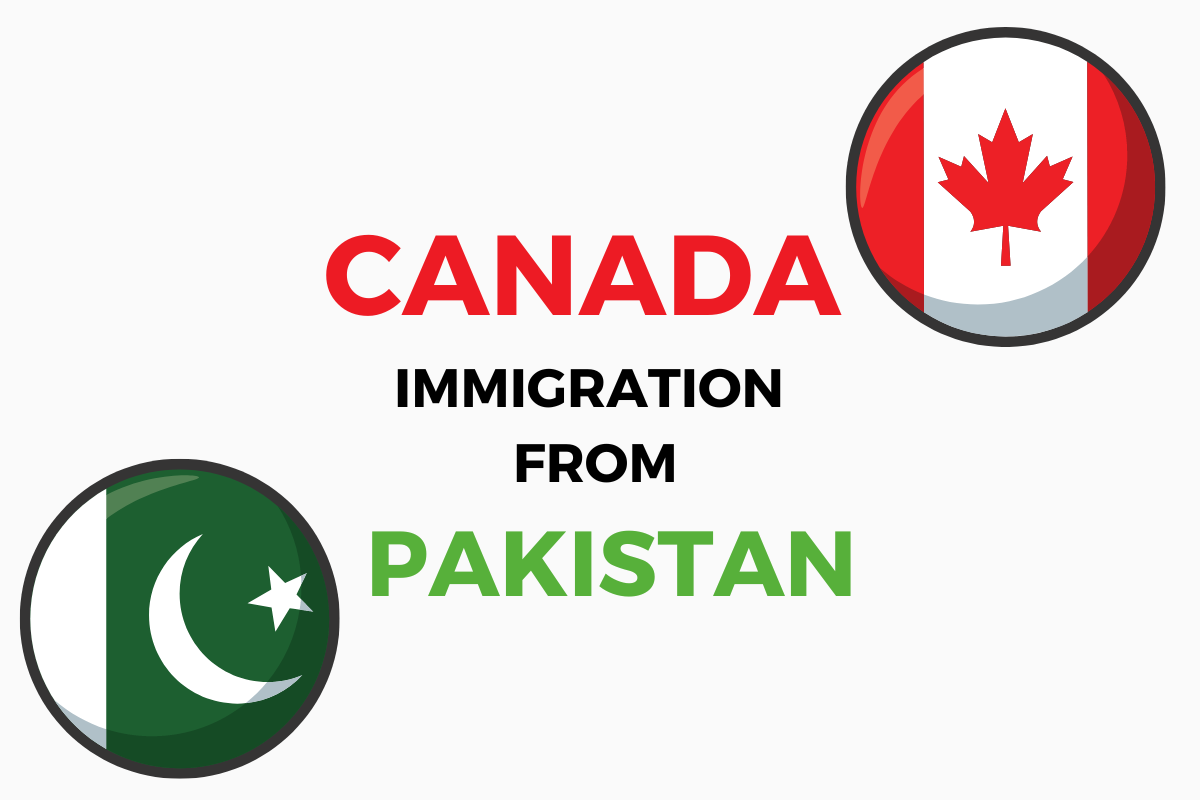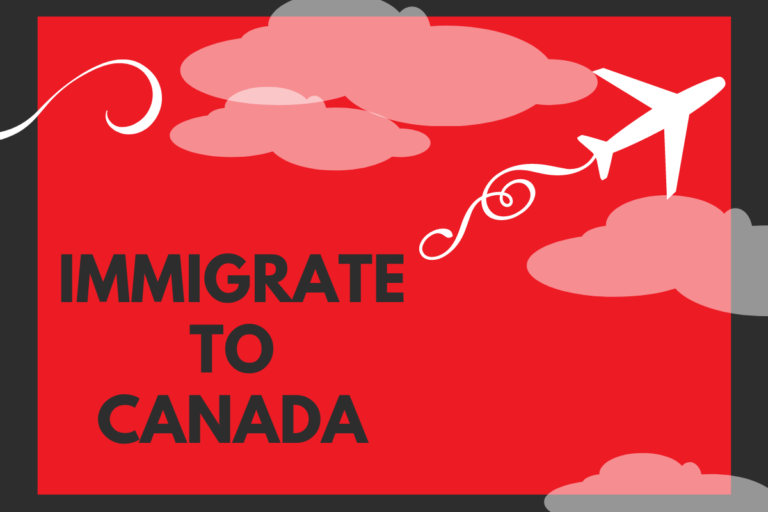How can I get Canada immigration from Pakistan?
There are several ways to immigrate to Canada from Pakistan, including:
- Federal Skilled Worker Program (FSWP): This program is for skilled workers who have experience in a high-demand occupation in Canada. The FSWP uses a points-based system to assess an applicant’s qualifications and experience.
- Federal Skilled Trades Program (FSTP): This program is for skilled tradespeople who want to work in Canada. The FSTP also uses a points-based system to assess an applicant’s qualifications and experience.
- Canadian Experience Class (CEC): This program is for individuals who have recently worked in Canada on a valid work permit and have Canadian language skills.
- Provincial Nominee Program (PNP): This program allows Canadian provinces and territories to nominate individuals for immigration to Canada. Each province and territory has its own criteria and processes for nomination.
- Family Sponsorship: Canadian citizens and permanent residents can sponsor certain family members to come to Canada as permanent residents.
- Study Permit: This is a permit that allows international students to study in Canada. After completing studies, international students may be eligible to apply for post-graduation work permit and apply for Permanent residency.
It is important to note that the eligibility criteria and application process for each program can vary, so it is important to research the program that best suits your qualifications and goals and review the requirements on the Government of Canada’s immigration website.
1- Federal Skilled Worker Program (FSWP)
The Federal Skilled Worker Program (FSWP) is a Canadian immigration program that allows skilled workers to apply for permanent residence in Canada. The program is designed to help meet the needs of Canadian employers by bringing in skilled workers who have the qualifications and experience to help fill gaps in the Canadian labor market.
To be eligible for the FSWP, you must:
- Score at least 67 points on the FSWP selection grid, which assesses factors such as your age, education, work experience, language proficiency, and adaptability to Canadian society.
- Have at least one year of continuous, full-time work experience (or equivalent part-time experience) in a skilled occupation within the last 10 years.
- Meet the language requirements, which include taking a language test and scoring at least Canadian Language Benchmark (CLB) 7 in all four language abilities (reading, writing, listening, and speaking).
- Pass a medical examination and obtain a police clearance certificate
- Have enough funds to support yourself and your dependents after you arrive in Canada.
Once you have met these eligibility requirements and have submitted a complete application, your application will be assessed based on the FSWP selection grid. If you meet the minimum points requirement and your application is otherwise complete, you will be invited to submit a permanent residence application.
It is important to note that the FSWP has a cap on the number of applicants that can be accepted under each occupation and the process time may change depending on the country you are applying from and the occupation you are applying under.
2- Federal Skilled Trades Program (FSTP)
The Federal Skilled Trades Program (FSTP) is a Canadian immigration program that allows skilled tradespeople to apply for permanent residence in Canada. The program is designed to help meet the needs of Canadian employers by bringing in skilled tradespeople who have the qualifications and experience to help fill gaps in the Canadian labor market.
To be eligible for the FSTP, you must:
- Have at least two years of full-time work experience (or equivalent part-time experience) in a skilled trade within the last five years.
- Meet the language requirements, which include taking a language test and scoring at least Canadian Language Benchmark (CLB) 5 in all four language abilities (reading, writing, listening, and speaking)
- Have a valid job offer for full-time work for at least one year in the same skilled trade in which you have experience.
- Pass a medical examination and obtain a police clearance certificate
- Have enough funds to support yourself and your dependents after you arrive in Canada.
Once you have met these eligibility requirements and have submitted a complete application, your application will be assessed based on the FSTP selection criteria. If your application is otherwise complete, you will be invited to submit a permanent residence application.
It is important to note that the FSTP has a cap on the number of applicants that can be accepted under each occupation and the process time may change depending on the country you are applying from and the occupation you are applying under.
3- Canadian Experience Class (CEC)
The Canadian Experience Class (CEC) is a Canadian immigration program that allows individuals who have Canadian work experience to apply for permanent residence in Canada. The program is designed to help individuals who have already established themselves in Canada and have a strong understanding of Canadian society to transition to permanent residence.
To be eligible for the CEC, you must:
- Have at least 12 months of full-time (or equivalent part-time) skilled work experience in Canada within the last 36 months before applying.
- Meet the language requirements, which include taking a language test and scoring at least Canadian Language Benchmark (CLB) 7 in English, or Niveaux de compétence linguistique canadiens (NCLC) 7 in French, in all four language abilities (reading, writing, listening, and speaking).
- Have a valid work permit at the time of application (if currently in Canada)
- Pass a medical examination and obtain a police clearance certificate
Once you have met these eligibility requirements and have submitted a complete application, your application will be assessed based on the CEC selection criteria. If your application is otherwise complete, you will be invited to submit a permanent residence application.
It is important to note that the CEC is designed for individuals who have already established themselves in Canada and have a strong understanding of Canadian society, so your work experience should be relevant to your skills and you should be able to demonstrate that you can establish yourself economically in Canada.
4- Provincial Nominee Program (PNP)
The Provincial Nominee Program (PNP) is a Canadian immigration program that allows Canadian provinces and territories to nominate individuals for permanent residence in Canada. Each province and territory has its own PNP program, with different criteria, streams and requirements. The PNP allows provinces and territories to tailor their immigration selection to meet their specific labour market needs and economic development goals.
To be eligible for the PNP, you must:
- Meet the specific criteria and requirements of the province or territory where you wish to apply.
- Score at least the minimum points required on the province or territory’s selection grid, which assesses factors such as your age, education, work experience, language proficiency, and adaptability to Canadian society.
- Have a valid job offer or business proposal from a Canadian employer in the province or territory where you wish to apply
- Meet the language requirements, which vary depending on the province or territory and the stream you are applying under.
- Pass a medical examination and obtain a police clearance certificate
- Have enough funds to support yourself and your dependents after you arrive in Canada.
Once you have met these eligibility requirements and have submitted a complete application, your application will be assessed based on the criteria and requirements of the province or territory where you wish to apply. If your application is otherwise complete, you will be nominated by the province or territory and can then submit a permanent residence application to the federal government.
It is important to note that the PNP is designed to meet the specific labour market needs and economic development goals of the provinces and territories, so the criteria and requirements will vary depending on the province or territory and the stream you are applying under. The process time may also vary depending on the province or territory and the occupation you are applying under.
5- Family Sponsorship:
Family sponsorship is a Canadian immigration program that allows Canadian citizens and permanent residents to sponsor certain family members to come to Canada as permanent residents. The program is designed to reunite families and allows Canadian citizens and permanent residents to sponsor their spouse, common-law partner, conjugal partner, dependent child, parent, grandparent, or other eligible relative to come to Canada as permanent residents.
To be eligible to sponsor a family member, you must:
- Be a Canadian citizen or permanent resident and be 18 years of age or older
- Meet the income requirements, which vary depending on the number of people in your household and the province or territory where you reside
- Be able to provide for the basic needs of the person you want to sponsor and any other family members who come to Canada with them
- Sign an undertaking promising to provide financial support for the person you are sponsoring and any other family members who come to Canada with them for a certain period of time.
Once you have met these eligibility requirements and have submitted a complete application, your application will be assessed based on the sponsorship criteria and requirements. If your application is otherwise complete, the family member will be able to submit a permanent residence application and if the application is approved, they will be able to come to Canada as a permanent resident.
It is important to note that the sponsorship process can take several months or even years to complete and the sponsorship undertaking is a legally binding agreement. The family member being sponsored must also meet the admissibility criteria for entering Canada, including passing a medical examination and obtaining a police clearance certificate.
6- Study Permit
A study permit is a document issued by the Government of Canada that allows foreign nationals to study in Canada for a specific period of time. A study permit is required for most foreign students who want to study in Canada, but there are some exceptions.
To be eligible for a study permit, you must:
- Have been accepted to a designated learning institution (DLI) in Canada.
- Prove that you have enough money to pay for your tuition fees, living expenses and return transportation.
- Pass a medical examination and obtain a police clearance certificate if required
- Be a law-abiding citizen with no criminal record and not be a security risk.
- Be in good health and have medical insurance
- Intend to leave Canada at the end of your studies
Once you have met these eligibility requirements and have submitted a complete application, your application will be assessed based on the study permit criteria and requirements. If your application is otherwise complete, you will be issued a study permit.
It is important to note that the study permit is a document that allows you to study in Canada, but it does not guarantee entry into Canada. The study permit holder must also meet the admissibility criteria for entering Canada. Furthermore, the study permit is linked to the specific institution and program for which it was issued, so if you change institutions or programs, you may need to apply for a new study permit.




